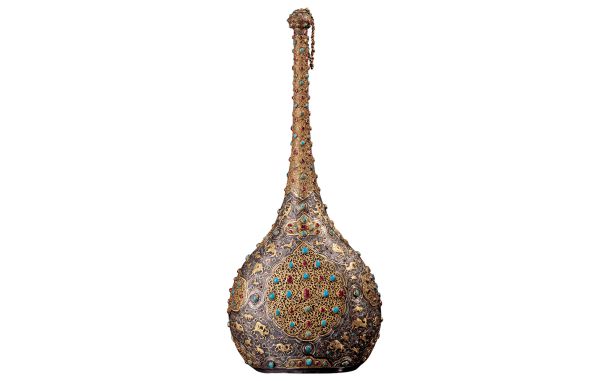Asceticism and Generosity

In This Article
-
Asceticism can also be approached from Bediuzzaman’s perspective as “renouncing the world not in action but in the heart.”
-
Generosity should not be understood solely as providing food, drink, or financial assistance. The scope of generosity is much broader, encompassing all forms of giving, good wishes, and goodwill towards others.
Asceticism (zuhd), in essence, involves renouncing worldly pleasures and completely removing the desires for the material world from one’s heart. A person who practices asceticism is known as an ascetic (zahid). An ascetic defines their relationship with the world based on necessity and need. They only seek the strength and energy required to perform their worship, explore spiritual realms, and focus on their ultimate spiritual goals. Their main aim is to achieve the pleasure of God and eternal happiness in the afterlife. However, they also understand that maintaining a balanced approach to these goals requires addressing basic physical needs such as rest, food, drink, and natural desires. Therefore, they do not follow a path that contradicts human nature.
Not in action but in the heart
Asceticism can also be approached from Bediuzzaman’s perspective as “renouncing the world not in action but in the heart.” A person who has renounced the world in their heart still actively engages in necessary tasks and responsibilities, doing their best in all they undertake. Whatever their task, they work diligently and strive to achieve the desired outcome. They use their thinking and reasoning powers, talents, and abilities to their fullest extent. However, they are not attached to the outcome. Even if they do not receive the fruits of their labor, they do not experience disappointment. They neither grieve over what they have lost nor rejoice over what they have gained in the world. When facing the loss of wealth, life, children, or health, the words that come from their lips are: “Praise be to God who had given all these and has now taken them back.” This is the attitude of a person who has attained the grace of asceticism in every positive or negative situation they encounter.
As for the relationship between asceticism and generosity, it is inconceivable for a person who has severed their emotional attachment to the world to be stingy. They do not hesitate to spend their resources in the way of God. From this perspective, asceticism naturally brings about generosity. Conversely, for a person to embrace asceticism, they must be able to spend what God has granted them comfortably in His way and, even more so, develop a spirit of altruism to the extent that they prefer their brothers and sisters over themselves, even if they are in need.
The Most Generous
One of the beautiful names of God is the Most Generous (al-Jawad). Although this name is not mentioned in the famous Prophetic saying listing God’s 99 names, it is stated in another one: “God is generous, He loves generosity” (Tirmidhi, Adab 41). Additionally, in the Jawshan al-Kabir, this name appears three times as “the Possessor of Generosity” and once as “the Most Generous of the Generous.” Some scholars use the intensified form (Jawwad) to emphasize the extent of God’s generosity, as His treasures are vast, and His giving knows no bounds. Therefore, a person who adopts generosity as a moral trait is essentially emulating the attributes of God.
Generosity should not be understood solely as providing food, drink, or financial assistance. The scope of generosity is much broader, encompassing all forms of giving, good wishes, and goodwill towards others. For example, when a person prays for sincerity, divine pleasure, and passionate longing for God, saying, “O God, bestow all these upon my brothers and sisters as well,” this is a form of generosity. Similarly, all behaviors required by a high spirit of altruism can be considered acts of generosity. A person with such noble character may even act generously towards their brothers and sisters in the afterlife, wishing for them to cross the Bridge (Sirat) first, enter Paradise first, and attain God’s pleasure first.
We can also relate generosity to the spirit of “so others may live.” A person who devotes his or her life so that others may thrive, who endures all kinds of sacrifices so that others can connect with God, and to remove barriers between hearts and God is someone who represents both generosity and asceticism at the highest level. This selfless dedication ensures the spiritual well-being and growth of others, embodying the true essence of generosity. For someone devoted to such lofty goals, what connection could they possibly have to the material world?
True freedom through asceticism
It should be noted that the path to experiencing true freedom also lies in asceticism. A person who does not attach their heart to worldly possessions or pleasures does not bow or bend before anyone. They do not flatter others, nor do they obey anyone unconditionally. Since they consider servitude to God as the highest honor, they see servitude to others as a form of associating partners with God. Even if the entire world were laid before them, they would not change their principles, because their path is not one that can be altered by worldly things. Let others change their course for a few mansions or flatter others for promised positions! Those dedicated to an eternal life should not be deceived by the behaviors of those who live only for today and ignore the Hereafter.
Let us conclude this section with the following poetic verses:
Begging from people has always been a burden to us,
For those whose sanctuary is God, such burdens are torment.
We have never tasted a favor tainted with servitude,
For those with a free conscience, such favor is torment.









